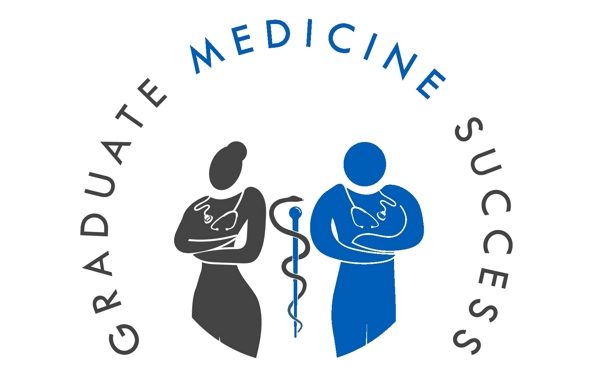
7 Steps to a Successful Personal Statement for Graduate Entry Medicine
Share with a friend!
Back when I was applying to med school, I wrote a personal statement that got me into Graduate Entry Medicine – I also got invites to interviews at all 3 places I applied to for GEM. Perhaps you, like me back then, are facing writing a personal statement with little to no support.
One thing we have as graduates is previous experience writing at least one successful personal statement! However, Medicine, and especially Graduate Entry Medicine, is extremely competitive and so understandably you are looking for some specific help.
In this blog post I share the 7 steps I went through to write my personal statement. If you’d like to read my successful personal statement, just click here!
First things first – make sure to write and save your personal statement in Microsoft Word or an equivalent programme. You’ll copy it across to the UCAS form only once it’s near 100% polished in step 7.
1. Plan
Once you have a clear structure in mind for your personal statement, the rest will feel easier. Now, you don’t need to structure it exactly like I did. But the below will give you an idea of what you could do – I wrote 6 paragraphs and used the following structure (each box represents a paragraph):
Introductory paragraph
|
| Work experiences, volunteering and how they have informed your career choice. |
| Academic ability and intellectual curiosity e.g. something that really snagged your interest during your studies so far. |
| Book / talk / other that has further fuelled your desire to study medicine. |
| Qualities of a doctor you have shown via extra-curricular activities and positions of responsibility. |
| Concluding paragraph – leave the reader convinced you understand Medicine is challenging / hard / not glamorous, but you are nonetheless motivated, enthusiastic and suitable (don’t add anything extra here!) |
2. Brainstorm
If you want to write a killer personal statement, it all starts here. Invest a sizeable amount of time into this brainstorming stage.
Jot down some ideas about what you could mention in your PS. Use the following as prompts:
- Academic work or achievements that will demonstrate an enthusiasm for science and learning. Also, that you possess intellectual curiosity e.g. a dissertation, essay, group project
- Medicine-related books you’ve read that are thought provoking or inspiring e.g. This is Going to Hurt by Adam Kay
- Medicine-related talks you’ve attended or watched online that you have found thought provoking or inspiring e.g. TED Talks
- Moments during work experiences & volunteering that have shown you the qualities doctors need and the realities of working in healthcare. Recall the details of any moments that have particularly inspired you to pursue this career or helped you to realise you are a good fit for it. Look at your work experience / volunteering journal for inspiration, if you kept one.
- Extra-curricular activities or positions of responsibility that demonstrate you possess qualities doctors need (such as teamwork, empathy and time management) e.g. captain of a sports team, member of a sports team, being in an orchestra or choir, being on the committee of a society, leading a campaign, fundraising, part-time jobs, other hobbies and interests
Struggling to find work experience? Check out my blog post How to Get Medical Work Experience in the COVID-19 Pandemic.
3. First draft
Allow your very first draft to be messy, imperfect and (feel) downright rubbish. Even professional writers write rubbish first drafts so don’t worry about it. The important thing is to get the first draft DONE.
UCAS gives you a maximum of 4,000 characters including spaces or 47 lines. When you first write your PS, it’ll likely shoot way over this. But don’t fret. You’ll remedy this in steps 4-6.
You also want to make sure you’re writing your PS in the right style…
Writing style tips:
- Write in the first person (“I”).
- Clear, straightforward language.
- Avoid colloquial language.
- Concise phrasing; avoid super long sentences.
- Use active wording e.g. “I organised”, “I completed”.
- Give specific examples with some detail and say how they have impacted you e.g. instead of “I organised work experience at my local hospital and it was very insightful because I learnt that doctors must be patient and kind” say something more like “I organised work experience at my local hospital and sat in on the consultations of an ophthalmologist. I observed the doctor was patient and warm with all their patients despite the time pressures they were under and this impressed upon me the empathy and patience required to be a doctor.”
At this point you may want to go grab a cup of tea, watch a movie or just sleep on it. Well done on getting this far!
Now, to turn your rubbishy first draft into a golden personal statement the next 4 steps will be absolutely key.
4. Edit
“The writer who breeds more words than he needs, is making a chore for the reader who reads.” ― Dr. Seuss
The ultimate goal with editing is to create a personal statement that is both concise and flows well when being read. Read back through your personal statement and rephrase sentences, delete sections that are unnecessary, add in bits you feel could add more to your statement and double check spelling and grammar (ensure it’s set to British English if you’re a UK applicant!)
Something I always do when editing any piece of writing is to READ IT OUT LOUD. I find I can miss subtle mistakes if I don’t do this plus it’s great for checking the flow of your writing.
Some say it’s helpful to print your statement before proofreading it also.
Remember, don’t just list what you’ve done. It’s crucial that you give specific examples, provide some detail and describe what you have learnt from your experiences & achievements.
5. Get feedback
Some websites encourage you to ask your friends and family to give you feedback on your personal statement. I don’t believe this is unhelpful. But I do believe it’s more helpful to ask those who have experience writing, or helping people to write, successful Medicine personal statements – there isn’t always an overlap.
If your old school has a track record of getting their pupils into Medicine, you could ask them for feedback. Some schools will be willing to help you even if you left quite a while ago!
You could also ask a member of staff at the university you are currently at or recently left who has experience helping students get into Medicine.
Perhaps you have some friends who are medical students or doctors – ask them too.
I asked a medical student who I had met coincidentally in my career before studying Medicine. Also, a member of university staff where I was doing my MSc at the time; they were super keen to get more students into Medicine from their department. This member of staff then put me in touch with a graduate who had recently got into Medicine from the same uni. This grad medical student kindly became my third pair of eyes!
Some of you may feel like there’s no one you can ask for quality feedback. Thankfully, there are people out there who are happy to critique your personal statement for FREE. Read my blog post Master List of FREE Medicine Personal Statement Reviewers.
6. Re-edit
This stage isn’t easy and may involve a lot of head scratching. You may go through several further drafts and that’s okay. You could even start all over again and write a whole new PS.
Either way, your goal is to refine your personal statement and produce its final form.
Consider the feedback given to you by the people you asked to review your PS. If you got feedback from multiple people, prioritise the feedback from those who have success writing, or helping people to write, successful Medicine personal statements.
You don’t have to create the best personal statement that ever existed. But to help ensure success, give it a good go!
Check out my Ultimate Medicine Personal Statement Checklist (free download) to help you ensure you’ve done all you can to make your PS excellent.
7. Finalise (check formatting, spelling & grammar)
Is your PS 4,000 characters or 47 lines or less?
Does your PS make sense and flow well for a reader despite the inevitable deletions and multiple rephrasings you’ve done during editing?
Have you done steps 1-6 of this blog post?
You may be ready to submit!
Time to run a final spelling and grammar check using Microsoft Word or equivalent. The UCAS form doesn’t allow you to do this so make sure to do it before copying it into UCAS.
Alrighty. Copy and paste it into the UCAS form. I personally found I had to make further edits to make it work in UCAS. Maybe you’ll be luckier. Either way, once you’re satisfied, submit it to UCAS and you’re done!
Further reading you may find helpful:
- Personal Statements ebook by We Are Medics
- Write the Perfect Personal Statement published by ISC Medical
-—
Voila! Sign up to my mailing list to get more tips in your email inbox.
Have some feedback on this article? Did I make an error? Please contact me via the contact page or leave a comment below.
You might also be interested in my article 6 Books to Read Before Your Medical School Interview.
—-






